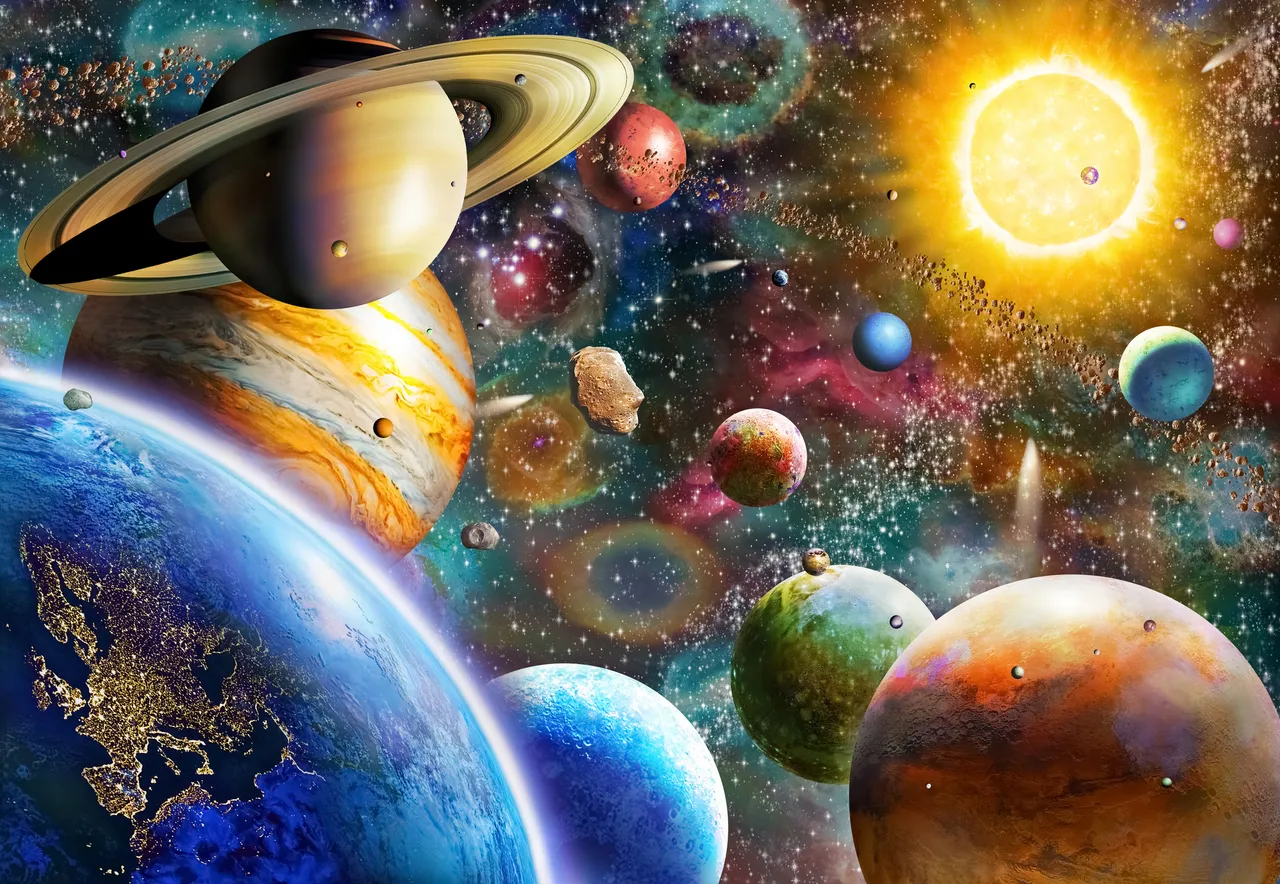
A planet is a celestial body that:
- Is in orbit around the Sun or another star.
- Has enough mass to be rounded by its own gravity, and
- Has cleared the neighborhood around its orbit.
The definition of a planet was officially established by the International Astronomical Union (IAU) in 2006, and it was used to categorize the planets in our solar system. The IAU definition was created to provide a clear and consistent way to distinguish between planets and other types of celestial bodies, such as dwarf planets, asteroids, and comets.
The first criterion, being in orbit around the Sun or another star, distinguishes planets from moons, which are celestial bodies that orbit a planet. The second criterion, having enough mass to be rounded by its own gravity, distinguishes planets from smaller bodies like asteroids and comets, which are not massive enough to be rounded by their own gravity. The third criterion, having cleared the neighborhood around its orbit, distinguishes planets from dwarf planets, which are celestial bodies that are large enough to be rounded by their own gravity but have not cleared the neighborhood around their orbits.
The IAU definition has led to some controversy, as it has resulted in the reclassification of some celestial bodies that were previously considered planets. For example, Pluto was previously considered the ninth planet in our solar system, but it was reclassified as a dwarf planet in 2006 due to its small size and highly eccentric orbit.
A planet, in the language of the cosmos, is a celestial heavyweight. It's an astronomical object orbiting a star, but it's not just any celestial body. To earn the prestigious title of "planet," an object needs to pass three cosmic challenges:
Challenge 1: Orbiting a Star: Like children dancing around a sunlit parent, planets revolve around a central star. This movement signifies their gravitational ties to the star, binding them to its celestial family.
Challenge 2: Roundabout Rules: A planet has to be more than just a celestial lump. It needs to possess enough mass to overcome its own gravity and achieve a hydrostatic equilibrium. This fancy term basically means it becomes a sphere, with its gravity pulling matter evenly towards its center, shaping it into a majestic orb.
Challenge 3: Clearning the Neighborhood: A true planet isn't a cosmic bully, but it does need to be the dominant gravitational force in its own orbital lane. This means it has cleared away most other objects in its path, except for perhaps moons or smaller celestial tiddlers.
PlanePower
Earning the planet title unlocks special cosmic abilities:
- Gravity: A planet's hefty mass exerts a powerful gravitational pull, influencing not just its moons but also objects in its vicinity.
- Atmosphere: Some planets, depending on their mass and distance from their star, can hold onto an atmosphere, a layer of gases surrounding them that can support life like on Earth.
- Geological: Planets, with their diverse compositions and internal heat, become dynamic stages for geological processes, shaping mountains, sculpting valleys, and even birthing volcanoes.
